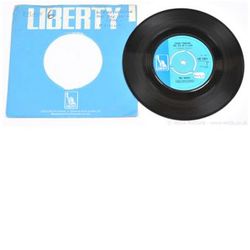The General Toy sale to be held on the 20th of April features large groups of vehicles from Corgi, EFE, Matchbox, Bburago, Vanguards, Danbury Mint, and others. Plus Franklin Mint Armour Collection, Sky Guardians Europe, Corgi Classics, Original Omnibus, Aviation Archive and Heavy Haulage. Further items include vintage electronic games from Nintendo, Play Station, Xbox and Atari; books, comics, DVDs, kits and cabinets and a collection of TV & film related items including magazine issues.
The Model Train sale to be held on the 21st of April starts with OO Gauge British Outline from Bachmann, Lima and Hornby, followed by HO American & Continental Outline from Athearn, Rivarossi, Bachmann and Fleischmann; N Gauge, various Narrow Gauge, Hornby Dublo 2 & 3-rail, Trix Twin and Wrenn Railways. Further items in the sale include OO Gauge Kit/Scratchbuilt, Meccano & Other Constructional Toys, Live Steam from Mamod and Wilesco, G Gauge ? Gauge 1 & Larger and Marklin/Hehr O & Gauge 1. There is a Single Owner Collection of Hornby O Gauge, plus Further O Gauge, Finescale Kit/Kitbuilt and Modern O Gauge plus our usual good selection of General Trains
The TV & Film related sale to be held on the 25th of April features predominantly Star Wars related items, including vehicles, creatures, playsets and figures. Carded figures include UK Graded, Tri Logo, mis cards and Power of the Force, which include CAS graded. The sale also includes loose figures, Hot Toys and Sideshow figures, plus modern collectables, Lego sets, signed posters, Master Replica Lightsabers, trading cards and busts. Further items include vintage Flash Gordon figures, Action Force, GI Joe, Ghostbusters and others.
The Diecast, figures, general toy and train sale to be held on the 13th of April features Corgi James Bond vehicles, icon figures, Spyguise issues, and Gift sets, plus tv and film related items from Minichamps, Joyride, and Dinky, and Sideshow and Mego figures. Further items include Lledo, Vanguards, EFE, Matchbox Dinky The Collection, Corgi modern trucks, Matchbox Yesteryears, Solido, Oxford Diecast, and Britains tractors, plus Airfix, and tinplate and plastic space and novelty toys. Model Train related items include OO, HO, and O gauge lots from Hornby, Fleischmann, Bachmann, Wrenn and Trix Twin amongst others.
Vectis use a slightly different Grading classification for Vinyl records to collectable toys.
This grading classification is as follows:
Mint: The record itself is in brand new condition with no surface marks or deterioration in sound quality. The cover and any extra items such as the lyric sheet, booklet or poster are in perfect condition. Records advertised as Sealed or Unplayed should be Mint.
Excellent: The record shows some sign of having been played, but there is very little lessening of sound quality. The cover and packaging might have slight wear and/or creasing.
Very Good: The record has obviously been played many times, but displays no major deterioration in sound quality despite noticeable surface marks and the occasional light scratch. Normal wear or tear on the cover or extra items, without any major defects, is acceptable.
Good: The record has been played so much that the sound quality has noticeably deteriorated perhaps with some distortion and mild scratches. The cover and contents suffer from folding, scuffing of edges, spine splits, discolouration etc.
Fair: The record is still just playable but has not been cared for properly and displays considerable surface noise; it may even jump. The cover and contents will be torn, stained and/or defaced.
Poor: The record will not play properly due to scratches, bad surface noise etc. The over and contents will be badly damaged or partly missing.







